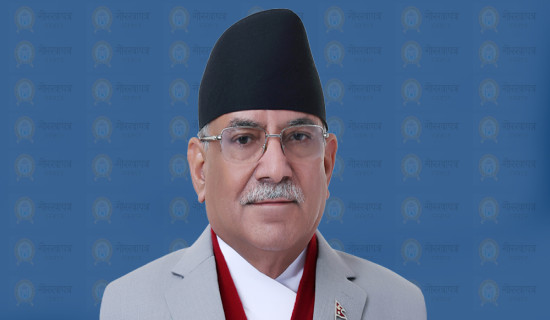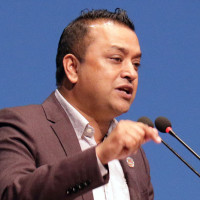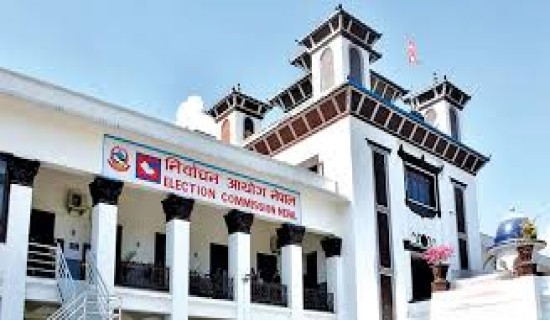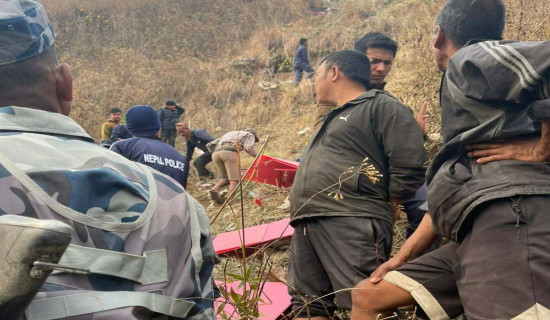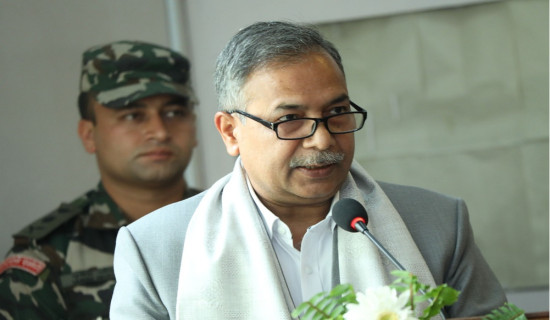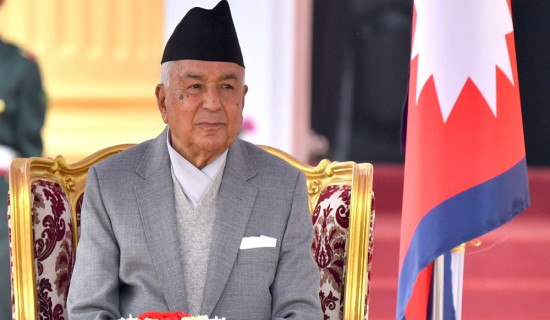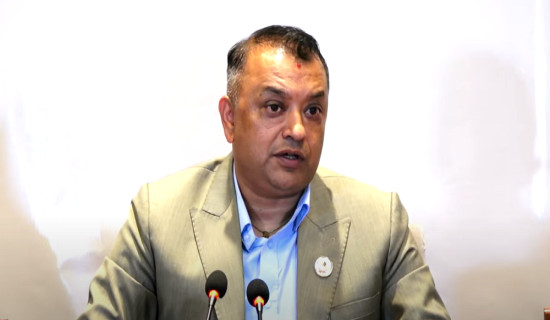- Tuesday, 3 March 2026
NCC: Shaping Future Leaders
Kaushal Pant
The National Cadet Corps (NCC) is a transformative force established in 2022 B.S. by the Government of Nepal. Its mission is to shape young boys and girls into exemplary citizens and future leaders. NCC focuses on holistic development, fostering character, leadership, sportsmanship, and the ideals of selfless service. By bringing together youth from diverse backgrounds, NCC aims to create a united, disciplined, and responsible citizenry. This organisation instills a profound sense of patriotism and pride, becoming a national and international platform for youth development. NCC Nepal, standing as a beacon of commitment, aspires to not only be a national but also an international youth organization. Through its efforts, it cultivates a skilled and dedicated youth cohort, poised to lead and contribute positively to society on a global scale.
Although it is a national programme of the country, it is completely handled and executed under Nepal Army senior-level management. The programme consists of two types of training for the senior and junior divisions. The main objective of these trainings is to create disciplined, loyal, and devoted youths by enhancing their physical and mental capacity. The junior division is for students from grades eighth to tenth, whereas the senior division takes students from +2 levels. A specific theoretical and practical 100-day syllabus guides the training. Similarly, 79 days of training are performed at respective schools, whereas the remaining 21 days of cadets have a residential camp at a Nepal Army barracks. No money is charged to the students during the programs. Similarly, participants are provided with nutritious food and drinks, along with complete sets of different prestigious uniforms.
Finally, cadets perform an esteemed pass-out parade (POP). After the completion of the POP programme, they are graduated and conferred the insignia as per the deserving ranks. More than 7,700 Cadets graduate each year. So far, more than 66,000 cadets have graduated since the establishment of the NCC. LRI School got its first quota for the NCC Senior Division in 2079 and the NCC Junior Division for the current year 2080.
During the training period, cadets are trained in different activities such as P.T., drill, aerobics, gun firing (by SLR) and its maintenance, wall-climbing, horse riding, swimming, public speaking, sand-model briefing, cultural programmes, sports activities, and many more (gun firing, wall-climbing, and horse riding are only for the Senior Division). In addition, cadets take part in awareness classes on traffic rules and different transmitted diseases. Some basic concepts of rescue operations in natural calamities are also demonstrated. Some of the students, after graduating from the NCC senior division, told me that this was the first time they had been away from home for such a long time. But it was very fruitful, where they learned many more life skills activities like discipline, time management, leadership qualities, perseverance, physical fitness exercises, life survival skills, team building, and many more.
The school's priority is academic courses for the students. However, the academic calendar is managed efficiently to smoothly conduct academic courses and the NCC programme simultaneously. There is always a great leader behind a successful organisation, and Major General Suresh Kumar Karki is the progressive leader behind NCC Nepal as its chief. As a result of his unwavering commitment to duty and sacrifices, NCC has achieved tremendous success and is growing in popularity day by day among young minds all over the country.
His dynamic leadership has inspired NCC Cadets towards philanthropic work as well. Consequently, a nationwide tree planting initiative has successfully concluded, marking a significant effort to preserve the environment. In parallel, cadets from LRI School NCC undertook a commendable endeavour by cleaning the premises of Bishnudevi Temple in Kathmandu as part of their social responsibilities. Their dedication to community service is evident, and they express eagerness to continue such endeavours in the future. The NCC cadets' impactful work in cleaning the premises of Bishnudevi Temple in Kathmandu received warm acknowledgment and appreciation from the local community.
The army conducts NCC not to make the enrolled cadets armies in the future but to transform them into capable, physically robust, responsible, and empathetic citizens that have leadership capabilities. The best performer among the cadets even gets a great exposure opportunity to visit SAARC countries and Singapore under the youth exchange programme and interact with their high-level delegates. So, all in all, the NCC programme is a comprehensive package for "young minds because youth are not only the future of their families but also the future of the nation."
(Pant is a freelance writer and NCC Programme Coordinator at LRI School.)



